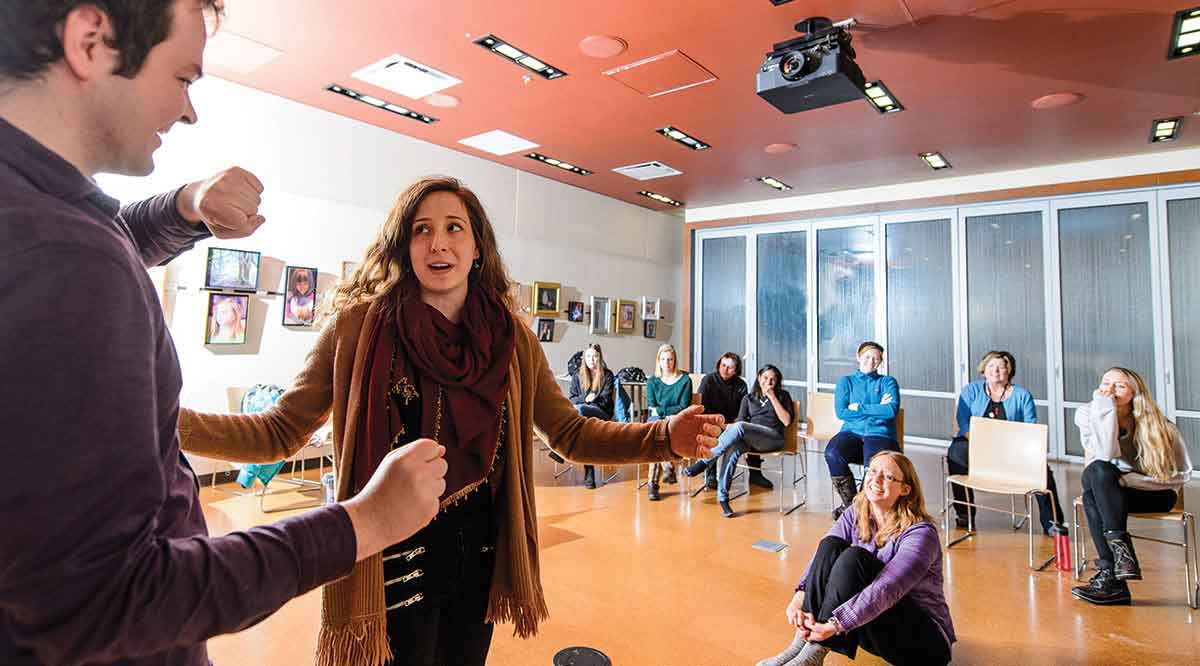Want to be a better doctor? Try talking into a banana, muttering gibberish, and tossing balls at colleagues. Medical improv transforms goofy theater games into serious skills like empathy, teamwork, and super-quick thinking.

Ajay Paul Singh, a second-year student at the University of Wisconsin School of Medicine and Public Health, felt a little nervous enrolling in a medical improv elective. But he says one exercise alone made the sweaty palms worthwhile.
The scene started with one participant standing in front of the class of 14, pretending to be an apathetic librarian. A second student then stepped in with the mission of mimicking the first student’s emotion without knowing what it was. But that participant misread apathy for sadness, performing in a way that made the first actor say, “Whoa, you’re bringing me down!” Next, her partner portrayed a frustrated accountant, but people mistook frustration for excitement.
“It opened my eyes, in a light-hearted way, to see how often we misunderstand people,” Singh says. “It was fun and humbling at the same time.”
Communication is full of such subtleties, medical educators say, and that’s precisely why medical improv is so valuable. The exercises, which use the principles of improvisational theater to hone skills needed in medicine, range from translating gibberish to communicating through eye contact alone. Sometimes, they are adapted to reflect medical scenarios, and sometimes they’re simply standard improv techniques followed by a medicine-related debrief.
No matter how goofy medical improv exercises sometimes seem, the effects are serious. The art form turns participants into sharper listeners, better collaborators, and more empathic people — and it helps them think on their feet, says medical improv pioneer Katie Watson, JD, an associate professor at Northwestern University Feinberg School of Medicine. “The same paradox drives physicians and improvisers,” she says. “They need to prepare for unpredictability.”
Interest in medical improv has been growing in recent years, as medical schools and teaching hospitals increasingly value the skills it teaches, says Lisa Howley, PhD, AAMC senior director of strategic initiatives and partnerships. Research shows that effective communication can improve patient outcomes, and improv markedly increased communication skills in one study of pharmacy students. Now, researchers believe a new tool published this month can better measure the educational effects of medical improv. Developed by four medical schools, the scale found that participants in a six-hour enhanced medical improv course scored significantly higher than those with no improv training.
“The arts and humanities have been shown to have effects on provider well-being and on diagnostic, communication, teamwork, and leadership skills,” notes Howley. The AAMC is currently commissioning a comprehensive review and leading a broad initiative to better integrate the arts — including improv — into medical education, she adds. Meanwhile, medical improv has accumulated a solid following, says Watson. So far, she has taught the curriculum she developed to more than 180 people in “Train the Trainer” classes, many of them faculty at medical schools.